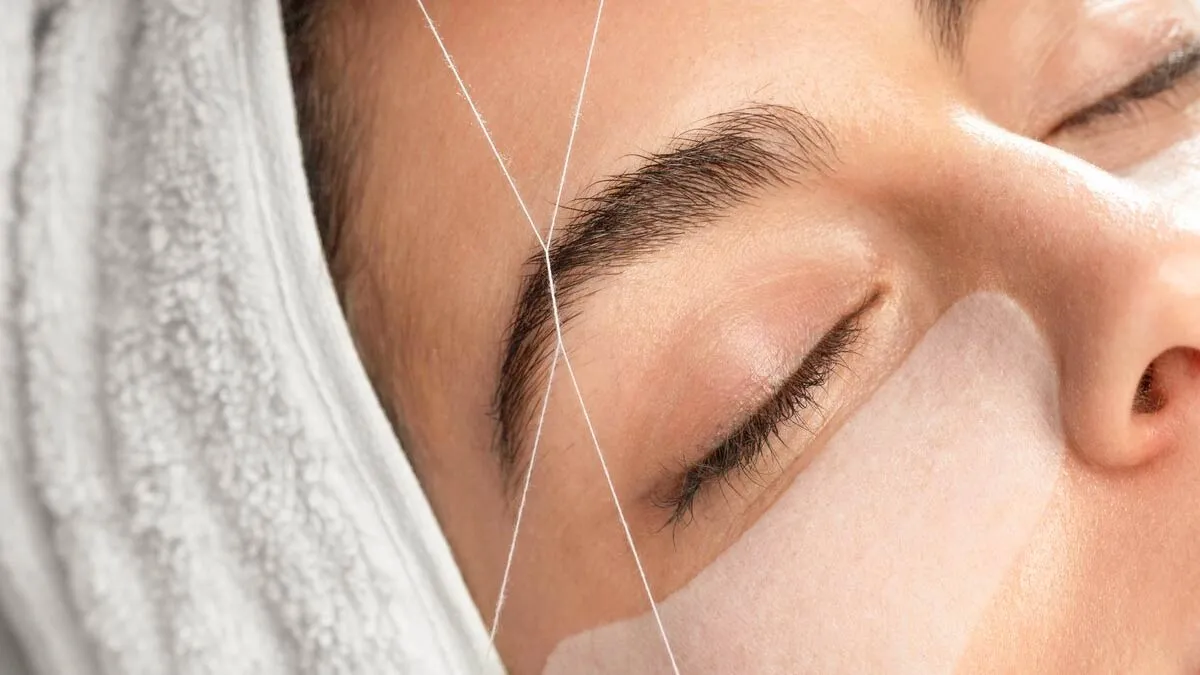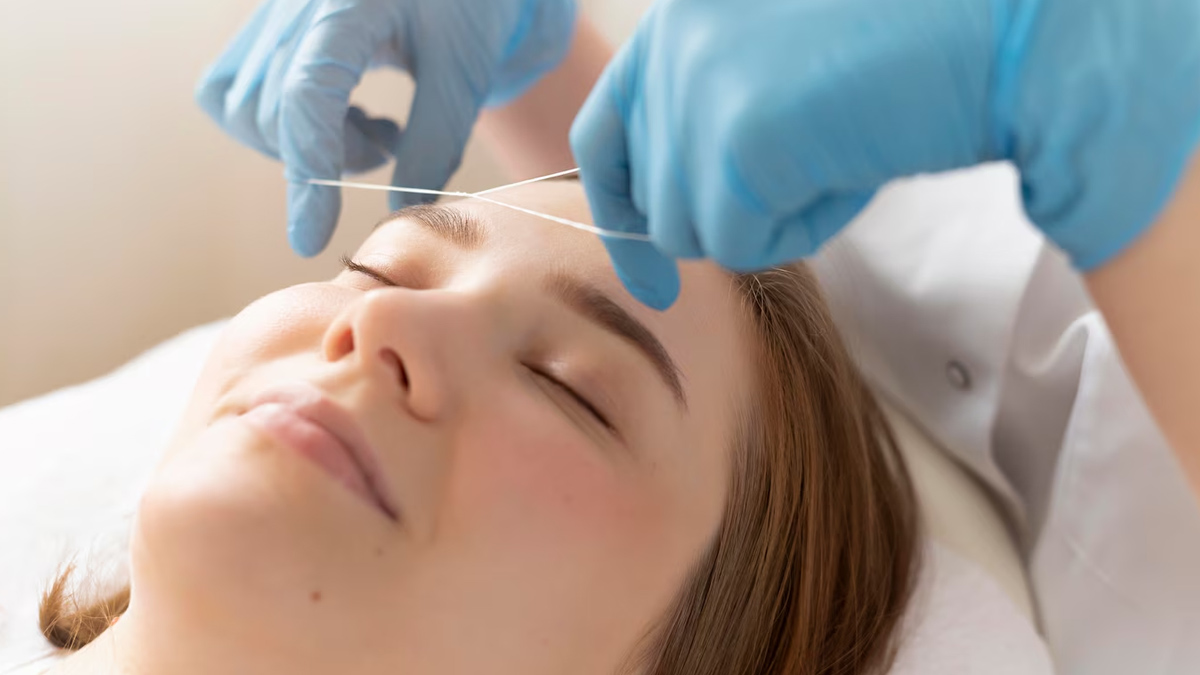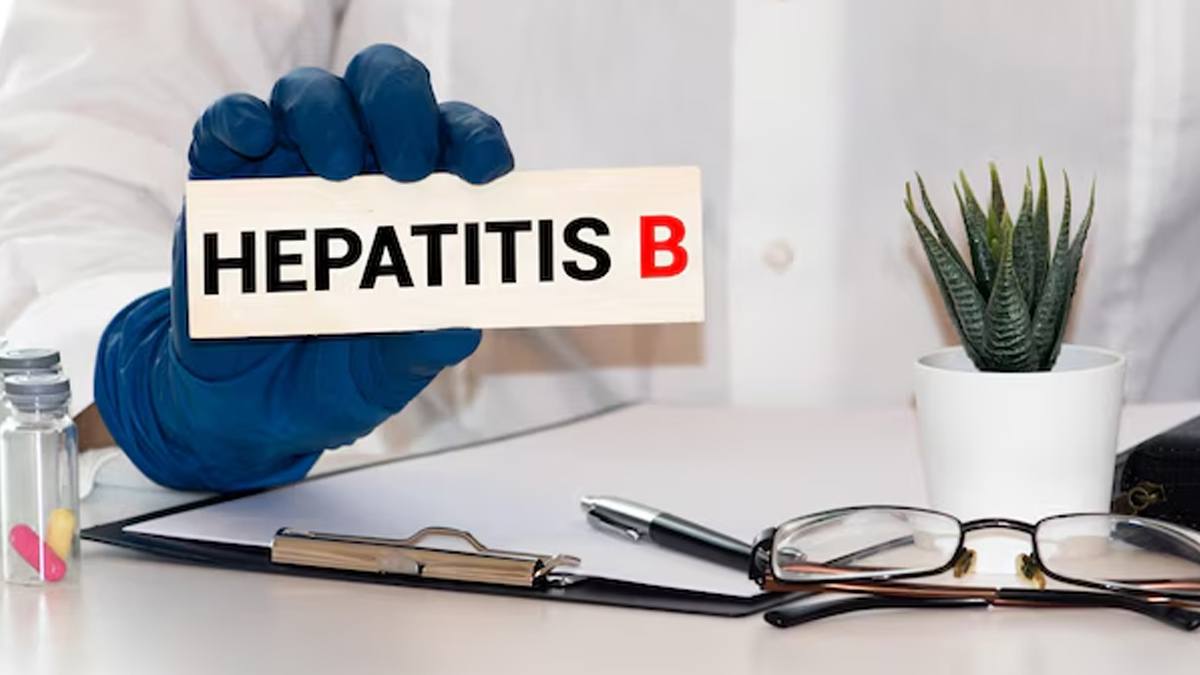
For most Indian women, threading or facial hair removal is a routine practice that is hardly viewed as dangerous. But a recent claim by a Mumbai-based doctor has raised alarms. In a viral video that garnered over 17K likes, Dr Vishal Gabale, an internal medicine expert, shared that "a simple threading session can give you hepatitis B infection," narrating a case where three women, all of whom had visited that same salon, tested positive for the virus with matching strains.
Table of Content:-
“As a doctor, this was highly unusual. It felt like a medical mystery. So, I did what doctors are trained to do: I stepped back and took a detailed history, asking them about their activities in the week before symptoms began,” he said in the video.
“That’s when the connection became clear: All three had visited the same threading salon,” Dr Gabale added.
View this post on Instagram
Also Read: Hepatitis Testing Day 2025: What Is The Difference Between Hepatitis B And Jaundice?
What Is Hepatitis B?

Hepatitis B is a viral infection that affects the liver. It can either be short-term or acute, or long-term or chronic. Hepatitis B is caused by the Hepatitis B virus (HBV), which can be transmitted through contact with infected blood or body fluids, like semen or vaginal secretions.
While most adults with acute hepatitis B recover fully, a small percentage develop chronic hepatitis, which can lead to serious liver complications like cirrhosis and liver cancer.
According to the World Health Organization (WHO), 10.2 lakh hepatitis B infections occur every year. In 2022, it led to an estimated 10.1 lakh deaths, mostly from cirrhosis and hepatocellular carcinoma (primary liver cancer).
How Does Hepatitis B Generally Spread?

According to Dr Bhushan Bhole, Consultant – General Surgery, PSRI Hospital, Delhi, hepatitis B spreads through exposure to infected blood and certain bodily fluids such as semen or vaginal fluids. "Common modes of transmission include unprotected sex, sharing of needles or syringes, transfusion of unscreened blood, sharing razors or toothbrushes with an infected person, and from mother to child during childbirth."
"Healthcare settings, dental procedures, and unsafe cosmetic practices like tattooing or piercings using unsterilised tools are also potential sources," he adds.
Can Threading Increase Hepatitis B Risk?
Unfortunately, beauty treatments like threading can, in fact, increase the risk of hepatitis B infections, especially if hygiene practices are not properly followed, says Dr Bhole.
He adds that while the risk is lower compared to other more invasive procedures, it still exists, especially in salons where threading tools like threads or hands come into contact with broken skin, open cuts, or bleeding pimples.
Dr Bhole also shares that hepatitis B is a bloodborne virus, and therefore, if a thread used for threading comes into contact with an infected person’s blood or bodily fluids and is reused on another person without proper sanitation or replacement, the virus can be transmitted.
Also Read: Breakthrough Hepatitis B Vaccine Provides Enhanced Protection for People with HIV
Studies have also highlighted the lack of awareness about hepatitis B and C transmission among beauty salon workers. A 2022 study published in the Pakistan Journal of Medical Sciences highlighted how out of 261 participants, less than 25% had adequate knowledge of these viruses, and only 17% were fully vaccinated against hepatitis B.
Researchers shared that many were unaware of proper sterilisation techniques, increasing the risk of virus transmission through tools like nail clippers and razors.
Safety Measures To Prevent Hepatitis B Infections At Salons

When visiting a salon, it is crucial to always choose salons that follow visible hygiene protocols.
“Look for places where the staff wears gloves, uses disposable tools, or sterilises reusable equipment,” says Dr Bhole, adding that it’s advisable to ask the beautician if they use a fresh thread for each client and whether the tools are disinfected after each use.
Bringing your own tools is also a safe practice in high-risk environments.
What Precautions Should Salons Take On Their Part?
Salons should follow strict sanitation protocols. This includes:
- Using disposable threads
- Sterilising non-disposable tools with approved disinfectants
- Wearing gloves
- Cleaning hands before and after each procedure
- Wiping surfaces regularly
- Disposing of or sterilising any equipment that comes into contact with blood or skin
A Final Word
While hepatitis B is a dangerous disease, protecting yourself from it isn't complicated; it just takes a bit of awareness and care. A simple vaccine can go a long way in keeping you safe, and small habits like not sharing razors or making sure your salon uses clean tools can make a big difference. Whether it's getting a tattoo, going for a facial, or getting a threading done, being cautious and informed helps you stay in control of your health. Prevention is not just about avoiding risk; it's about making smart, mindful choices every day.
Also watch this video
How we keep this article up to date:
We work with experts and keep a close eye on the latest in health and wellness. Whenever there is a new research or helpful information, we update our articles with accurate and useful advice.
Current Version
